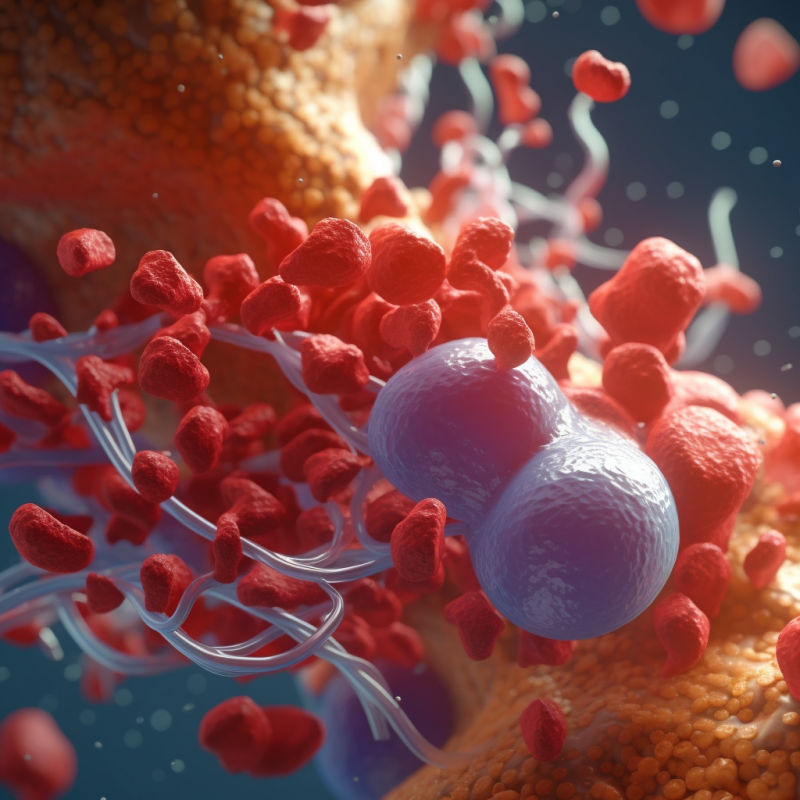Lung Cancer

Lung cancer is a type of cancer that originates in the lungs, which are responsible for breathing in oxygen and expelling carbon dioxide.
What is lung cancer?
Lung cancer is a type of cancer that originates in the lungs, which are responsible for breathing in oxygen and expelling carbon dioxide. Lung cancer may be divided into two main types: small cell lung cancer and non-small cell lung cancer.
Who's at risk for lung cancer?
Risk factors for lung cancer may include:
- Smoking or exposure to secondhand smoke
- Exposure to certain chemicals, such as radon or asbestos
- Family history of lung cancer
- Air pollution
- Previous radiation therapy to the chest
What causes lung cancer?
The primary cause of lung cancer is smoking or exposure to secondhand smoke. Other risk factors, such as exposure to certain chemicals or radiation therapy, may also increase the risk of developing lung cancer.
How does lung cancer start?
Lung cancer may start as a small cluster of abnormal cells in the lungs, which can grow and spread over time. In its early stages, lung cancer may not cause any symptoms, but as the cancer grows and spreads, it may cause symptoms such as coughing, chest pain, and shortness of breath.
What are the symptoms of lung cancer?
Symptoms of lung cancer may include:
- Persistent coughing
- Chest pain
- Shortness of breath
- Wheezing
- Hoarseness
- Fatigue
- Weight loss
- Loss of appetite
- Difficulty swallowing
- Swelling in the face or neck
How is lung cancer diagnosed?
A healthcare provider may perform several tests to diagnose lung cancer. These tests may include:
- Imaging tests: These tests, such as X-rays, CT scans, or MRI, can help detect any abnormalities in the lungs.
- Biopsy: This test involves removing a small sample of tissue from the lungs to examine for cancer cells.
How can lung cancer be treated?
Treatment for lung cancer may depend on the stage and severity of the cancer and may include:
- Surgery: This treatment involves removing the cancerous part of the lung.
- Radiation therapy: This treatment uses high-energy radiation to kill cancer cells.
- Chemotherapy: This treatment involves using drugs to kill cancer cells.
- Targeted therapy: This treatment targets specific proteins or genes that are involved in the growth and spread of cancer cells.
What complications may occur with lung cancer?
Complications of lung cancer may include:
- Spread of cancer: Lung cancer can spread to other parts of the body, such as the bones or brain.
- Fluid buildup: Lung cancer can cause fluid to build up in the chest cavity, making it difficult to breathe.
- Infections: Lung cancer can weaken the immune system, making it more susceptible to infections.
How can I prevent lung cancer?
Prevention of lung cancer may include:
- Not smoking: Avoiding smoking or exposure to secondhand smoke is the best way to prevent lung cancer.
- Avoiding exposure to certain chemicals: Avoiding exposure to chemicals such as radon or asbestos can also help reduce the risk of developing lung cancer.
- Getting regular check-ups: Regular check-ups with a healthcare provider can help detect lung cancer in its early stages when it is more treatable.
Long-term management of lung cancer
Long-term management of lung cancer may involve ongoing monitoring and treatment to prevent relapse or the development of new complications. It is important to work closely with a healthcare provider to develop an individualized treatment plan.
What is recent research saying about lung cancer?
Recent research has focused on the development of new and more effective treatments for lung cancer, including immunotherapy and targeted therapy. These treatments may help improve survival rates and quality of life for individuals with lung cancer.
Where can I go for more information on lung cancer?
The American Cancer Society and the National Cancer Institute are both helpful resources for information on lung cancer. It is also important to work closely with a healthcare provider for guidance and support in managing lung cancer.

